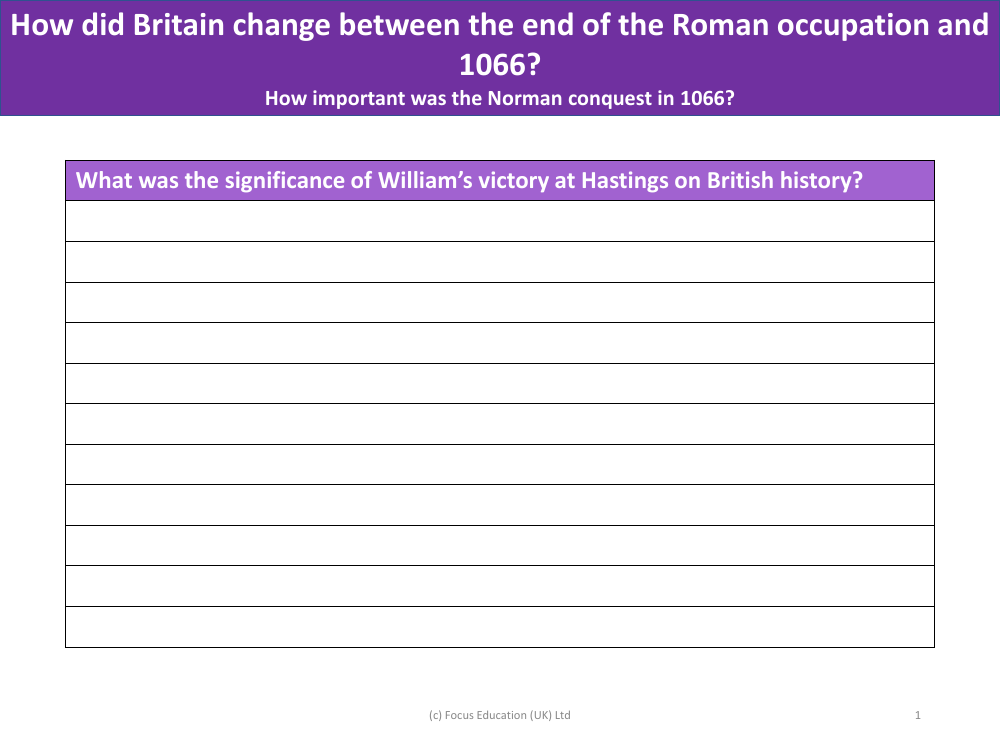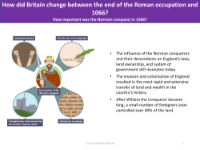What was the significance of William the Conqueror's victory at Hastings on British History?

History Resource Description
The victory of William the Conqueror at the Battle of Hastings in 1066 is a watershed moment in British history. This significant event marked the beginning of Norman rule in England, which brought about profound changes in the country's governance, language, culture, and social structures. The victory led to the end of the Anglo-Saxon era and the establishment of a new monarchy, with William becoming the first Norman king of England. His reign introduced Norman customs and the feudal system, which reshaped the English aristocracy by replacing Anglo-Saxon lords with Norman ones. Additionally, the Norman Conquest led to the development of the English language as we know it today, with the infusion of French vocabulary and changes in grammar.
Between the end of Roman Britain in the early 5th century and the Norman Conquest of 1066, Britain underwent significant transformations. The departure of the Romans left a power vacuum that was filled by a variety of peoples, including the Anglo-Saxons, who established their own kingdoms and culture. The Anglo-Saxon period saw the development of the English language, law, and a distinct cultural identity. The Norman Conquest was a pivotal event that built upon these foundations but also altered them fundamentally. The conquest introduced continental European influences and centralized royal authority, which had a lasting impact on the political landscape of Britain. It was a critical moment that set the stage for the country's future development and its position within the wider European context.





